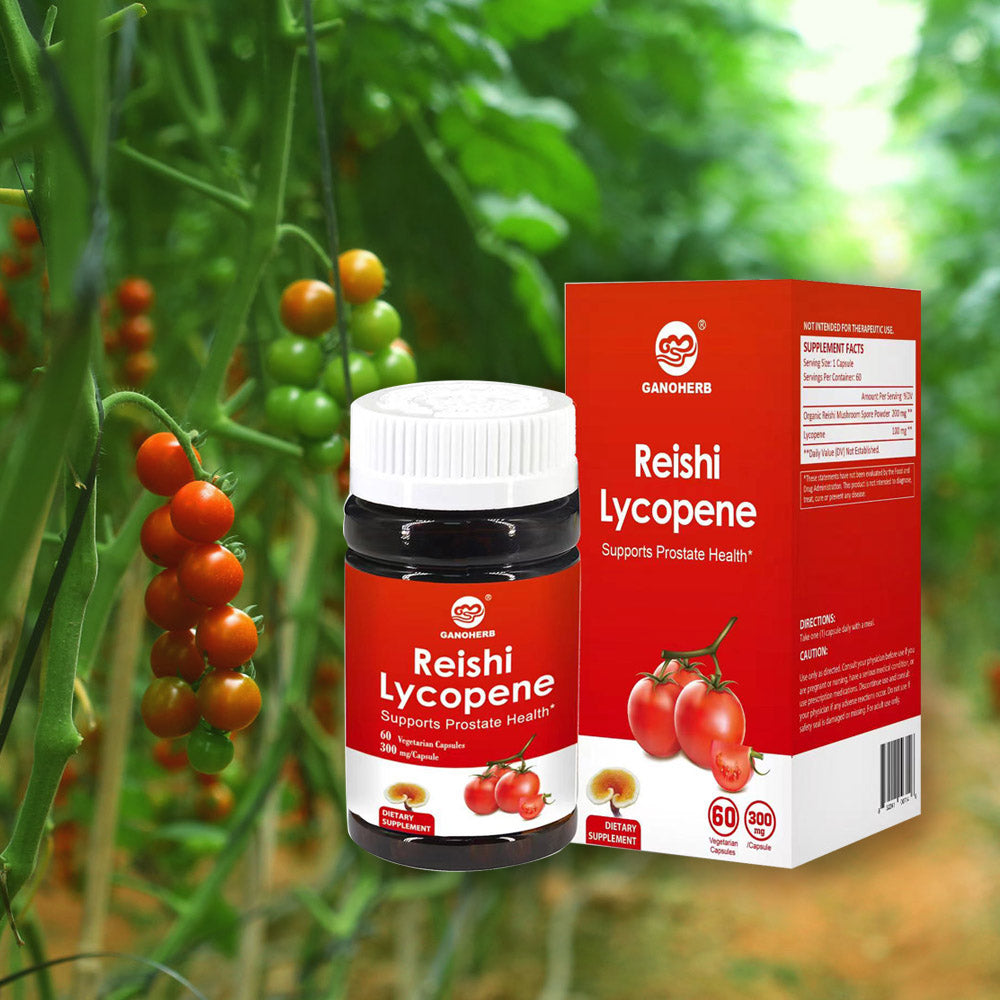Why Is Turkey Tail Mushroom Coffee Becoming So Popular?
In recent years, a unique beverage has been quietly making its way into kitchens and cafes around the world: turkey tail mushroom coffee. This intriguing blend combines the rich, familiar notes of coffee with the subtle, earthy tones of turkey tail mushrooms, creating a drink that stands out in the crowded world of specialty beverages. But what exactly is turkey tail mushroom coffee, and why is it capturing the attention of so many? Unlike traditional coffee, this fusion offers a distinct experience that appeals to those looking for something different in their daily routine. In this article, we will explore turkey tail mushroom coffee from various angles, delving into its origins, production, flavor, cultural context, and how it compares to other drinks. By the end, you'll have a comprehensive understanding of what makes turkey tail mushroom coffee a noteworthy addition to the beverage scene.

The Origins and History of Turkey Tail Mushroom Coffee
Turkey tail mushroom coffee has roots that trace back to the growing interest in functional foods and natural ingredients. The turkey tail mushroom, scientifically known as Trametes versicolor, has been used in various cultural practices for centuries, particularly in East Asia, where it was valued for its aesthetic appeal and symbolic meanings. The idea of combining mushrooms with coffee likely emerged from the broader trend of incorporating botanical elements into everyday consumables. This blend represents a modern twist on traditional uses, aiming to offer a unique drinking experience. The development of turkey tail mushroom coffee involved experimenting with extraction methods to balance the mushroom's characteristics with coffee's robust profile. As people sought out novel beverages that aligned with a focus on natural and sustainable sources, turkey tail mushroom coffee gained traction. Its rise in popularity can be attributed to a desire for variety and the appeal of exploring new flavors in familiar formats. Today, turkey tail mushroom coffee is not just a niche product but part of a larger movement toward innovative food and drink combinations that reflect changing consumer preferences.
How Turkey Tail Mushroom Coffee Is Produced
The production process of turkey tail mushroom coffee is a careful blend of art and science, ensuring that the final product maintains the integrity of both components. It typically starts with sourcing high-quality turkey tail mushrooms, which are often harvested from controlled environments to ensure consistency and purity. These mushrooms are then dried and ground into a fine powder or processed to extract their essence. Meanwhile, coffee beans are selected for their compatibility with the mushroom's profile—often opting for medium to dark roasts that can complement the earthy notes. The blending phase involves mixing the mushroom extract or powder with the ground coffee in precise ratios to achieve a balanced flavor. Some producers use advanced techniques like freeze-drying or infusion methods to preserve the delicate attributes of the turkey tail mushroom. Packaging is also crucial, as it helps maintain freshness and potency, often involving airtight containers to protect against moisture and light. The entire process emphasizes quality control, from sourcing to final product, to deliver a consistent turkey tail mushroom coffee experience. This attention to detail ensures that each cup offers a harmonious blend, making turkey tail mushroom coffee a reliable choice for those curious about its unique composition.
The Flavor Profile of Turkey Tail Mushroom Coffee
When it comes to taste, turkey tail mushroom coffee presents a complex and nuanced profile that sets it apart from standard coffee. The base coffee contributes familiar elements like bitterness, acidity, and roasted notes, which can vary depending on the bean origin and roast level. Adding turkey tail mushroom introduces earthy, woody, and slightly sweet undertones that mellow out the coffee's intensity. This combination results in a smoother, more rounded beverage that might appeal to those who find traditional coffee too harsh. The aroma of turkey tail mushroom coffee often carries hints of forest floor and mild spices, enhancing the overall sensory experience. Depending on the preparation method—such as brewing it as a drip, pour-over, or espresso—the flavor can shift, allowing for customization. Some users describe turkey tail mushroom coffee as having a layered taste that evolves with each sip, starting with the coffee's richness and finishing with the mushroom's subtle earthiness. This makes turkey tail mushroom coffee an exciting option for adventurous palates seeking to explore beyond conventional drinks. Overall, the flavor of turkey tail mushroom coffee is a key factor in its growing appeal, offering a distinctive alternative that doesn't overwhelm but rather complements the coffee experience.
Cultural and Social Aspects of Turkey Tail Mushroom Coffee
Turkey tail mushroom coffee isn't just a beverage; it's part of a broader cultural shift toward mindful consumption and experimentation in food and drink. In many societies, mushrooms have held symbolic roles, often associated with nature and resilience, and the turkey tail mushroom is no exception. Its inclusion in coffee reflects a blending of traditional knowledge with modern lifestyle trends, appealing to individuals who value authenticity and connection to natural sources. Socially, turkey tail mushroom coffee has found a place in communities focused on wellness and sustainability, though we're avoiding any specific claims about its effects. It's often discussed in online forums, social media, and specialty cafes, where people share their experiences and recipes. This has helped turkey tail mushroom coffee become a conversation starter, fostering a sense of community among enthusiasts. Additionally, the rise of turkey tail mushroom coffee aligns with the increasing popularity of plant-based and organic products, as it typically uses natural ingredients without artificial additives. As more people seek out unique beverages that tell a story, turkey tail mushroom coffee benefits from this narrative-driven approach, making it more than just a drink but a part of a lifestyle choice that emphasizes curiosity and exploration.

Comparing Turkey Tail Mushroom Coffee to Other Beverages
To fully appreciate turkey tail mushroom coffee, it's helpful to compare it with other popular beverages, such as regular coffee, tea, and other mushroom-infused drinks. Regular coffee is known for its strong, caffeine-driven profile, often with a focus on bold flavors and energy boost, but turkey tail mushroom coffee offers a different angle by incorporating earthy elements that can soften the overall taste. In contrast to tea, which might emphasize herbal or floral notes, turkey tail mushroom coffee maintains a coffee-centric base while adding depth from the mushroom. When compared to other mushroom coffees, like those made with chaga or lion's mane, turkey tail mushroom coffee stands out due to the specific characteristics of the turkey tail mushroom—such as its mild, woodsy flavor that doesn't dominate the blend. This makes turkey tail mushroom coffee a versatile option that can fit into various drinking habits without requiring a complete shift in routine. In terms of preparation, turkey tail mushroom coffee is similar to regular coffee, often brewed using standard methods, which adds to its accessibility. However, its unique composition means it might appeal to a different audience—those looking for a subtle twist on a classic. By understanding these comparisons, one can see why turkey tail mushroom coffee has carved out its own niche, offering a balanced alternative that bridges gaps between different beverage categories.
In summary, turkey tail mushroom coffee represents an innovative fusion that brings together the world of coffee and botanical ingredients. From its historical roots and meticulous production to its distinct flavor and cultural relevance, turkey tail mushroom coffee offers a multifaceted experience that resonates with today's consumers. Its ability to stand out in comparisons with other drinks highlights its unique position in the market. As more people discover turkey tail mushroom coffee, it continues to evolve, reflecting broader trends in food and beverage innovation. Whether you're a coffee aficionado or simply curious about new tastes, turkey tail mushroom coffee provides an opportunity to explore something different and engaging.
Frequently Asked Questions About Turkey Tail Mushroom Coffee
Q1: What is turkey tail mushroom coffee made from?
A1: Turkey tail mushroom coffee is typically made from a blend of ground coffee beans and processed turkey tail mushroom extract or powder, combined to create a balanced beverage with unique flavors.
Q2: How should I brew turkey tail mushroom coffee for the best results?
A2: You can brew turkey tail mushroom coffee using standard methods like drip machines, French press, or pour-over, similar to regular coffee. Adjust the brewing time and water temperature to suit your taste preferences for optimal flavor.
Q3: Does turkey tail mushroom coffee contain caffeine?
A3: Yes, since it includes coffee beans, turkey tail mushroom coffee contains caffeine. The exact amount can vary based on the coffee blend used, but it generally provides a similar caffeine content to traditional coffee.
Q4: Where can I purchase turkey tail mushroom coffee?
A4: Turkey tail mushroom coffee is available online through various retailers, specialty food stores, and some cafes. Look for brands that emphasize quality sourcing and transparent ingredient lists.
Q5: Can I add sweeteners or milk to turkey tail mushroom coffee?
A5: Absolutely! Turkey tail mushroom coffee can be customized with sweeteners, milk, or alternative creamers just like regular coffee. Experimenting with additions can enhance its earthy notes and create a personalized drinking experience.











